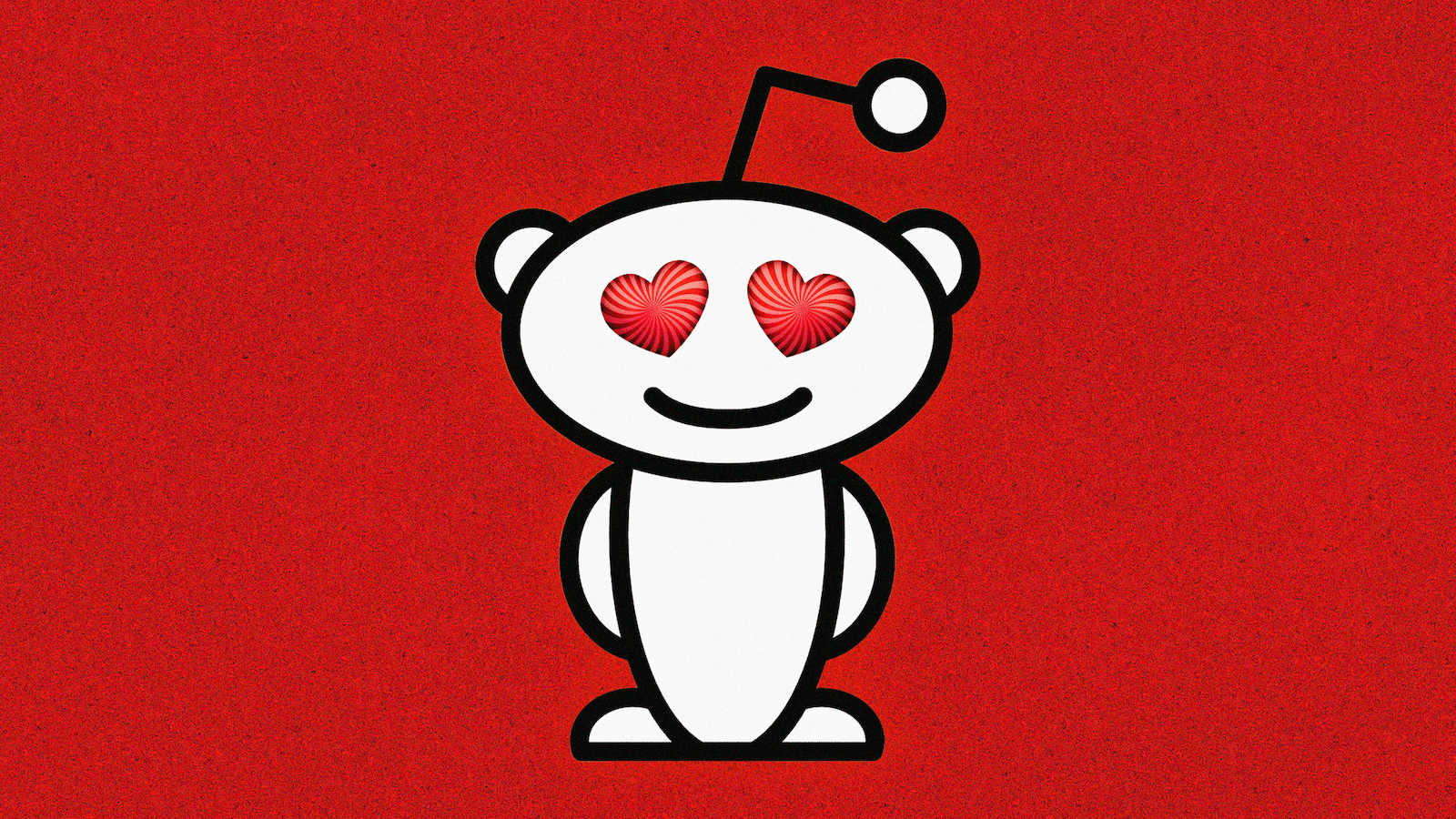You’ve probably taken a peek at your ex’s Instagram, or maybe checked out a co-worker's background on LinkedIn. But just as the internet has made it easier to do just a little digital creeping, it can also take a much darker turn—helping some people take certain urges further than they ever should.
Obsessive Love, a subreddit that has been running since 2019, is an internet community that has users swapping tips on getting access to webcams of their beloved—many of which aren’t properly password-secured—using specialist search engines such as Shodan, which archive electronic devices. Some users even share advice about reverse-engineering mobile hunting apps, used to help hobbyists avoid shooting deer on someone’s land, that can reveal the identities of property owners including the names of their targets. Other tips include advice on using burner phones, creating fake social media accounts to circumvent blocks, and using photos from the online AI image generator “This Person Does Not Exist” to avoid detection.
Having someone hack into your unsecured webcam isn’t far-fetched either and has been surprisingly common in the past. There are even online databases still running where you can find webcams in households from England to Taiwan. It doesn’t take a tech genius to figure it out either as many webcams ship with generic easy-to-crack passwords—or at least did up until recently before hardware manufacturers became more aware of these issues.

/r/ObsessiveLove users will often share tips on how to best cyberstalk their victims.
Screenshot courtesy of Will McCurdyBut you have to dig slightly deeper to find this content. Obsessive Love is centered around the theme of “Yandere”, a Japanese word that translates loosely as someone who is “lovesick.” The concept is commonly found in manga and anime with characters who are so devoted to their object of desire that it is impossible for them to detach or to let go, even if it harms themselves and others—which it usually does.
But on Obsessive Love, the lines between fiction, crime, and roleplaying blur. You can find advice about how to find identifying information in Facebook pictures, alongside cutesy anime memes, carefully curated “love shrines” bearing locks of their target’s hair, and exaggerated or fictional posts detailing events in users' lives.

Users will build shrines to the people they're obsessed with and share it with one another.
Screenshot courtesy of Will McCurdyBut is the Obsessive Love community really encouraging dangerous or potentially criminal behavior, or would this behavior have occurred anyway? Is much of it just convoluted anime fandom gone too far? And can we police these types of gray areas effectively?
Sam Jahara, a psychotherapist in the U.K., believes that niche online communities such as Obsessive Love run the risk of exacerbating existing mental health issues, comparing it to the pro-anorexia online communities that we have seen crop up in recent years.
Jahara told The Daily Beast that online communities have the capacity to “feed people’s delusions.” She also points out that often the image that people project in online communities does not match who they are in reality. “There are all sorts of people taking advantage by pretending to be somebody that they’re not,” she said. “It’s extra problematic because it’s all happening virtually.”
“The internet can make many mental health problems worse, stalking being just one of them,” she later added.

This thread shows users sharing advice on how to keep track of victims' location.
Screenshot courtesy of Will McCurdyIt’s possible that Obsessive Love could be merely adding fuel to an already burning fire in the cases of many users. Jahara believes that you simply won’t find a stalker who doesn’t have some type of underlying mental health issue or interpersonal issue, but the extent of this varies. The spectrum can range from those who are merely malignant to those who, in the most extreme cases, are capable of violence or even murder.
According to Jahara, a common recurring theme is that a person will lack empathy, and not understand how unpleasant it is to be the object of one-directional desire. A stalker will generally be somebody who is quite lonely and “doesn’t have a lot of other things going on”. This usually includes extremely poor, interpersonal relationships due to various reasons.
Reddit doesn’t have the best record when it comes to keeping morally questionable material off the platform either. For example, “CreepShots”, a subreddit which operated for years until it was banned in 2012, allowed users to swap photographs of women taken non-consensually with a hidden camera. “BeatingWomen”, a subreddit which contained domestic violence content, operated until around 2014.
Diyi Liu, who is currently a doctoral candidate researching the power of digital communities in the modern era at the University of Oxford’s Internet Institute, told The Daily Beast that “awful but lawful” subreddits present difficult questions for those looking to prevent harm. She believes most activities on Obsessive Love might not be strictly criminal—at least in the U.S. where the law tends to lean more toward free speech—even if they are harmful. Though stalking and harassment are illegal in the U.S., sharing advice on collecting information isn’t.
Liu mentions that Reddit deploys a decentralized moderation strategy in tackling questionable subreddits. In this model, volunteer moderators take charge of what is posted within their community, as opposed to the centralized model employed by platforms such as Twitter, where salaried moderators work to a scheme of unified rules. In her eyes, the problem could be somewhat remedied by giving users more power.

/r/Obsessive_Love users will sometimes share how advice on how to physically stalk their victims in real life.
Screenshot courtesy of Will McCurdyIn her eyes, the problem could be somewhat remedied by giving users more power, as opposed to deferring to largely unchallenged, often unelected moderators. Liu also believes Reddit’s currency policy of “quarantining” controversial subreddits, which reduces their visibility to non-members, works fairly well.
The subreddit’s moderators did not respond when reached for comment on why advice pertaining to facilitating cyberstalking is not removed.
But some in the Obsessive Love community claim to have no intention of ever carrying out their interests in real life. Jordan, a young woman from the U.S., told The Daily Beast that she has been fascinated by the genre for years—but for her, it’s all just fantasy. She was initially drawn in by popular vampire fiction, where the theme of unrequited love is exceptionally common, even if the term “yandere” is never used. She then grew to love animes such as Future Diary which features yandere as a trope, and the character of Misa Amane from Death Note.
“I guess I get a thrill from watching these things, similar to how most people feel when they watch horror movies,” she said. “And depending on the nature of the character, I sometimes find them relatable.”
She added, “I like seeing people who are just as devoted and obsessive as I am.”
Jordan is quick to point out that she feels that many in the community aren’t entirely serious when it comes to acting out their fantasies. In fact, they aren’t even as “obsessed” as they claim to be according to Jordan, and will lose interest in a person just as quickly as anyone else. She describes most of the members as just “12 to 16-year-old TikTokers, claiming that they’ll kill anyone who talks to their boyfriend or girlfriend.”
Another user who spoke to The Daily Beast feels that being stigmatized might make the problem worse, saying “yanderes aren’t threats and if we’re treated like it, it only makes us more likely to be that way.”
Despite some members of the community claiming it is largely harmless, Aleksandar Kochovski, an IT expert who specializes in online privacy and harassment, believes that cyberstalking is an incredibly serious problem that is only set to get worse. Cyberstalking, like all other forms of digital crime, “has certainly ramped up over the past years” Kochovski said. Like other cybercrime, the COVID-19 pandemic caused it to skyrocket.
He also attributed this dramatic rise in cyberstalking due to society being simply more “terminally online” and the rise of dating apps like Tinder and Grindr where many of these obsessive love interests first begin.
If you are interested in protecting yourself, Kochovski believes it’s important to keep your online presence free of as much identifiable information as possible. According to him, there is no clear barrier between physical and cyberstalking—at least not anymore.
For example, cyberstalkers can use photos from Instagram to grab information that reveal a potential victim’s address, such as a traffic sign in the background.

Some of the advice shared include tips on how to track down victims' locations using what little information they have about them.
Screenshot courtesy of Will McCurdyUltimately when it comes to the question of deciding who should bear responsibility, Liu believes twisted online content is a “humanity problem, rather than an online moderation platform problem”, pointing to cases of right-wing extremism.
“If one subreddit got shut down, they just migrate to another or even move to a new online platform altogether,” Liu said. “I absolutely don’t think the platforms are the only ones that should be blamed.”
Regardless of how innocent some users of Obsessive Love claim that their intentions are, we’ve seen niche online communities fuel impossible-to-justify real-life behavior before, such as in the many reported incidents connected to pro-suicide message boards. Moderating online communities is a difficult problem. However, it’s a problem that has been around for the best part of a decade and it won’t go away just because we ignore it.







